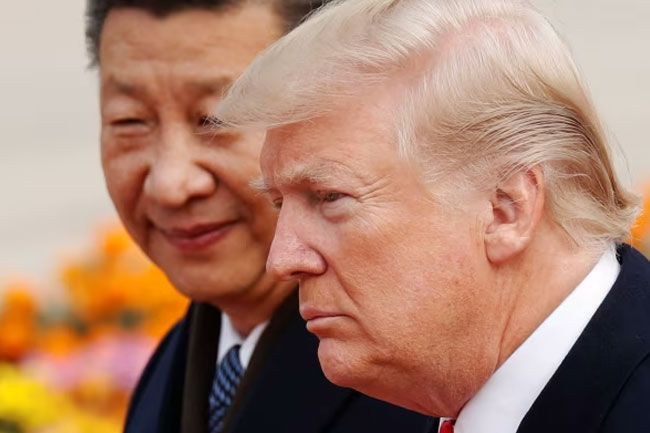The Deportation of Mahmoud Khalil: A Controversial Saga
Explore the complex case of Mahmoud Khalil, a Columbia University student, whose deportation has sparked debates on national security and freedom of speech in the United States.
Published April 12, 2025 - 00:04am

Image recovered from vanityfair.com
The deportation case of Mahmoud Khalil, a prominent pro-Palestinian activist and former Columbia University student, has stirred significant controversy and debate both within the United States and internationally. The Trump administration's efforts to deport Khalil, citing national security concerns, have raised substantial questions about freedom of speech and the rights of activists to protest government policies.
Mahmoud Khalil, an Algerian-born Palestinian, has been a vocal advocate for Palestinian rights and led student protests at Columbia University against the war in Gaza. These demonstrations brought significant attention to the plight of Palestinians and attracted participation from thousands of students. However, the Trump administration, with Secretary of State Marco Rubio at the helm, has viewed these protests as activities that could potentially undermine U.S. foreign policy interests. In a one-and-a-half-page memo, Rubio invoked an obscure provision of the Immigration and Nationality Act of 1952 to argue for Khalil's deportation.
Critics of the administration's stance argue that Khalil's deportation is part of a broader strategy to suppress dissent and stifle free speech. Khalil himself, in a letter from jail, expressed that his targeting was indicative of a broader strategy to suppress dissenting voices in the U.S., especially those critical of the government's Middle East policies. Human rights organizations have echoed these sentiments, warning that Khalil's deportation could set a dangerous precedent for other activists and limit the exercise of freedom of expression.
The legal battle has centered around whether Khalil's activism constitutes a legitimate threat to national security. Judge Jamee E. Comans of a Louisiana federal court ruled that the Trump administration had sufficiently demonstrated grounds for Khalil's deportation, citing his participation in protests allegedly aligned with Hamas, which could pose challenges to Washington's foreign policy in the Middle East.
Despite the ruling, Khalil's lawyers have vowed to contest the decision, highlighting that the government has not provided concrete evidence of any criminal activity beyond peaceful protest. Legal experts and civil rights advocates have criticized the legal basis for the deportation, arguing that it relies on shaky allegations rather than solid evidence.
The broader implications of this case are profound. It has sparked renewed discourse on U.S. immigration policies and how they intersect with individual rights to free speech and protest. The Trump administration's hardline stance on such issues has drawn both domestic and international criticism, with many accusing the government of weaponizing immigration laws to silence its critics.
As the case unfolds, it continues to attract significant media attention and mobilize activists who see Khalil's plight as emblematic of a larger struggle for civil liberties in the United States. Protests have erupted across the nation, with protesters demanding justice for Khalil and an end to what they perceive as the administration's unjust targeting of activists.
The legal proceedings are ongoing, and Khalil's lawyers have until April 23 to seek a stay on his deportation. Meanwhile, courts in different jurisdictions, including a federal court in New Jersey, have offered temporary reprieves, reflecting the complex and contentious nature of the case.
The outcome of Mahmoud Khalil's case will undoubtedly have lasting implications for immigration policy, freedom of speech, and human rights advocacy in the United States. It stands as a pivotal moment in the ongoing conversation about how democratic societies reconcile national security concerns with individual rights.







